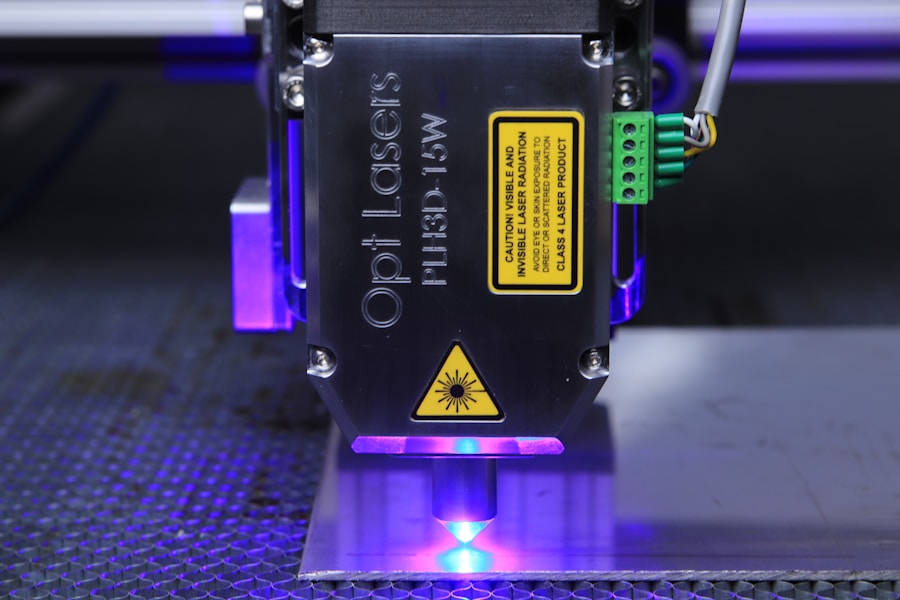Hidradenitis Suppurativa, also known as acne inversa, is a chronic skin condition characterized by painful, inflamed lesions that typically develop in areas where skin rubs together, such as the armpits, groin, and buttocks. These lesions can range from small, pimple-like bumps to deep, painful abscesses that can rupture and leak foul-smelling pus. HS is a debilitating condition that can significantly impact a person’s quality of life, causing physical discomfort, emotional distress, and social isolation.
The exact cause of HS is not fully understood, but it is believed to be related to inflammation of the hair follicles and sweat glands. Factors such as genetics, hormonal imbalances, and immune system dysfunction may contribute to the development of HS. The condition often begins in adolescence or early adulthood and tends to persist for many years, with periods of flare-ups and remission. Unfortunately, there is no cure for HS, and treatment options are aimed at managing symptoms and preventing complications.
The Challenges of Managing HS Symptoms
Managing the symptoms of HS can be incredibly challenging for individuals living with the condition. The chronic nature of HS means that patients may experience recurrent flare-ups of painful lesions, which can be both physically and emotionally distressing. The lesions can cause significant discomfort, making it difficult to move, sit, or engage in physical activities. In addition, the open wounds and drainage associated with HS can lead to infection and scarring, further complicating the management of the condition.
Furthermore, the impact of HS extends beyond the physical symptoms, as individuals with the condition may also experience psychological distress and social stigma. The visible nature of the lesions can lead to feelings of self-consciousness and embarrassment, causing some individuals to avoid social situations and intimate relationships. The chronic pain and discomfort associated with HS can also take a toll on mental health, leading to anxiety, depression, and decreased quality of life. Overall, managing the symptoms of HS requires a comprehensive approach that addresses both the physical and emotional aspects of the condition.
How Laser Hair Removal Can Help Manage HS
Laser hair removal has emerged as a promising treatment option for managing the symptoms of HS. This non-invasive procedure uses concentrated beams of light to target and destroy hair follicles, reducing the growth of hair in treated areas. Since HS is believed to be related to inflammation of the hair follicles, reducing hair growth in affected areas may help alleviate symptoms and prevent flare-ups. By targeting the source of inflammation, laser hair removal has the potential to provide long-term relief for individuals living with HS.
In addition to reducing hair growth, laser hair removal can also help improve the overall appearance of the skin in affected areas. The procedure can help minimize scarring and hyperpigmentation associated with HS lesions, leading to smoother, clearer skin. This can have a positive impact on an individual’s self-esteem and confidence, helping them feel more comfortable in their own skin. Overall, laser hair removal offers a multifaceted approach to managing HS symptoms, addressing both the underlying inflammation and the visible effects of the condition.
The Benefits of Laser Hair Removal for HS Management
The benefits of laser hair removal for managing HS are numerous and far-reaching. By targeting and destroying hair follicles, the procedure can help reduce the frequency and severity of flare-ups, providing long-term relief for individuals living with the condition. This can lead to a significant improvement in quality of life, allowing patients to engage in physical activities and social interactions without the burden of chronic pain and discomfort. In addition, the reduction in hair growth can help prevent complications such as infection and scarring, further improving the overall management of HS.
Furthermore, laser hair removal can have a positive impact on an individual’s mental health and well-being. By improving the appearance of the skin in affected areas, the procedure can help alleviate feelings of self-consciousness and embarrassment that are commonly associated with HS. This can lead to increased self-esteem and confidence, empowering individuals to live their lives more fully and without the burden of social stigma. Overall, the benefits of laser hair removal for managing HS are not only physical but also emotional, providing a comprehensive approach to addressing the challenges of living with this chronic skin condition.
The Safety and Effectiveness of Laser Hair Removal for HS
Laser hair removal is considered a safe and effective treatment option for managing HS symptoms when performed by a qualified provider. The procedure has been extensively studied and has been shown to provide long-lasting reduction in hair growth in treated areas. Additionally, laser hair removal has been found to be well-tolerated by most patients, with minimal discomfort and few side effects. However, it is important for individuals considering laser hair removal for HS to seek treatment from a reputable provider with experience in treating this specific condition.
It is also important to note that while laser hair removal can provide significant relief for individuals living with HS, it may not be a suitable option for everyone. Factors such as skin type, hair color, and medical history can impact the safety and effectiveness of the procedure. Therefore, it is essential for individuals to undergo a thorough evaluation by a qualified provider to determine if laser hair removal is an appropriate treatment option for their specific needs. By working with a knowledgeable and experienced provider, individuals can ensure that they receive safe and effective care that is tailored to their unique circumstances.
What to Expect During Laser Hair Removal Treatment
During a laser hair removal treatment for HS, patients can expect to undergo a series of sessions over several months to achieve optimal results. The procedure typically involves the use of a handheld device that emits concentrated beams of light onto the skin in targeted areas. The light energy is absorbed by the pigment in the hair follicles, causing damage that inhibits future hair growth. Patients may experience a mild stinging or snapping sensation during treatment, but this discomfort is generally well-tolerated and subsides quickly.
Following each session, patients may experience some redness and swelling in treated areas, which typically resolves within a few hours. It is important for individuals undergoing laser hair removal for HS to follow post-treatment care instructions provided by their provider to minimize the risk of complications and ensure optimal results. With each subsequent session, patients can expect to see a gradual reduction in hair growth in treated areas, leading to long-term relief from the symptoms of HS. Overall, laser hair removal treatment for HS offers a safe and effective approach to managing this chronic skin condition.
Finding a Qualified Provider for Laser Hair Removal for HS
When seeking laser hair removal treatment for HS, it is essential for individuals to find a qualified provider with experience in treating this specific condition. A reputable provider will have specialized knowledge and expertise in addressing the unique challenges associated with managing HS symptoms through laser hair removal. Patients should seek out providers who have a proven track record of success in treating HS and who are committed to delivering safe and effective care.
In addition to experience and expertise, individuals should also consider factors such as the provider’s credentials, facility accreditation, and patient reviews when selecting a provider for laser hair removal for HS. It is important to schedule a consultation with potential providers to discuss treatment options, ask questions about their experience with HS management, and ensure that they have a thorough understanding of the condition. By taking the time to research and select a qualified provider, individuals can feel confident that they are receiving the best possible care for managing their HS symptoms through laser hair removal.
In conclusion, Hidradenitis Suppurativa is a chronic skin condition that presents numerous challenges for individuals living with the condition. However, laser hair removal has emerged as a promising treatment option for managing the symptoms of HS by reducing hair growth in affected areas and improving the overall appearance of the skin. The procedure offers numerous benefits for individuals living with HS, providing long-term relief from chronic pain and discomfort while also addressing the emotional impact of the condition. When seeking laser hair removal treatment for HS, it is essential for individuals to find a qualified provider with experience in treating this specific condition to ensure safe and effective care tailored to their unique needs. By taking a comprehensive approach to managing HS symptoms through laser hair removal, individuals can experience improved quality of life and greater confidence in their own skin.






